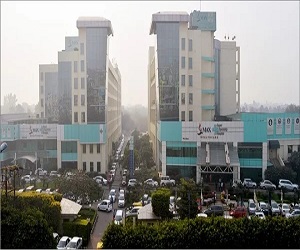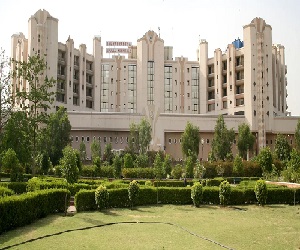Bladder cancer arises when cells in the bladder’s inner lining begin to grow abnormally and uncontrollably. As the condition progresses, these cancerous cells can invade the bladder wall and may even spread to other parts of the body.
Bladder cancer treatment is determined by the extent of the disease’s growth within the bladder layers and other influencing factors. It’s essential to assess whether the cancer has spread beyond the bladder to effectively plan the appropriate treatment.
Investigations Required to Diagnose The Bladder Cancer
The doctor begins by discussing the patient’s symptoms and collecting general information, including family and medical history, to understand the condition better. Following this initial assessment, the doctor recommends various tests to diagnose the disease accurately.
Urine Test: A urine sample is collected to check for the presence of abnormal cells, bacteria, or blood.
Physical Examination: The patient must undergo a physical examination of the vagina and rectum to check for any bladder cancer lumps pressing against these organs.
Additional tests are conducted to detect the presence of bladder cancer.
- Cystoscopy
- MRI and CT scan
- Urogram
How is Bladder Cancer Surgery done?
Doctors recommend various types of bladder cancer surgery depending on factors such as the stage and grade of the patient’s disease.
Transurethral bladder tumor resection (TURBT): In this process, the patient is first given anesthesia to sleep during the surgery. Then, the surgeon puts a small tube called a cystoscope into the bladder through the pee hole. They use a tool called fulguration to take out the tumor. This method is great for patients with bladder cancer that hasn’t spread deeply into the bladder tissue.
Radical Cystectomy and Lymph Node Dissection: This surgery removes the whole bladder and nearby organs and tissues, like the prostate and part of the vagina, urethra, ovaries, or fallopian tube. Pelvic lymph node dissection is done to check if cancer has spread to the lymph nodes and to remove it if needed.
Urinary diversion: In this procedure, the doctor creates a new way for urine to leave the patient’s body. They take a small part of the intestine or colon to reroute urine to a stoma outside the body. A bag connected to the stoma collects urine and removes it from the patient’s body.
Risks and Complications of the Bladder Cancer Surgery
Similar to most surgeries, bladder cancer surgery can entail certain complications.
- Infection
- Urine leaks
- Erectile dysfunction
- A longer time to heal
- Bleeding or blood clots
- Discomfort post-surgery
- Loss of vigor and stamina
- Injury to organs close to the bladder
Bladder Cancer treatment costs in India
| Treatment | Cost in USD | Stay in Hospital |
| Bladder Cancer Treatment | 2300-2800 | 4-5 Days |
| Anal Cancer Treatment | 2300-2800 | 4-5 Days |
| Brain Tumor Surgery | 4800-5000 | 4-6 Days |
| Breast Cancer Treatment | 3700-4500 | 4-5 Days |














